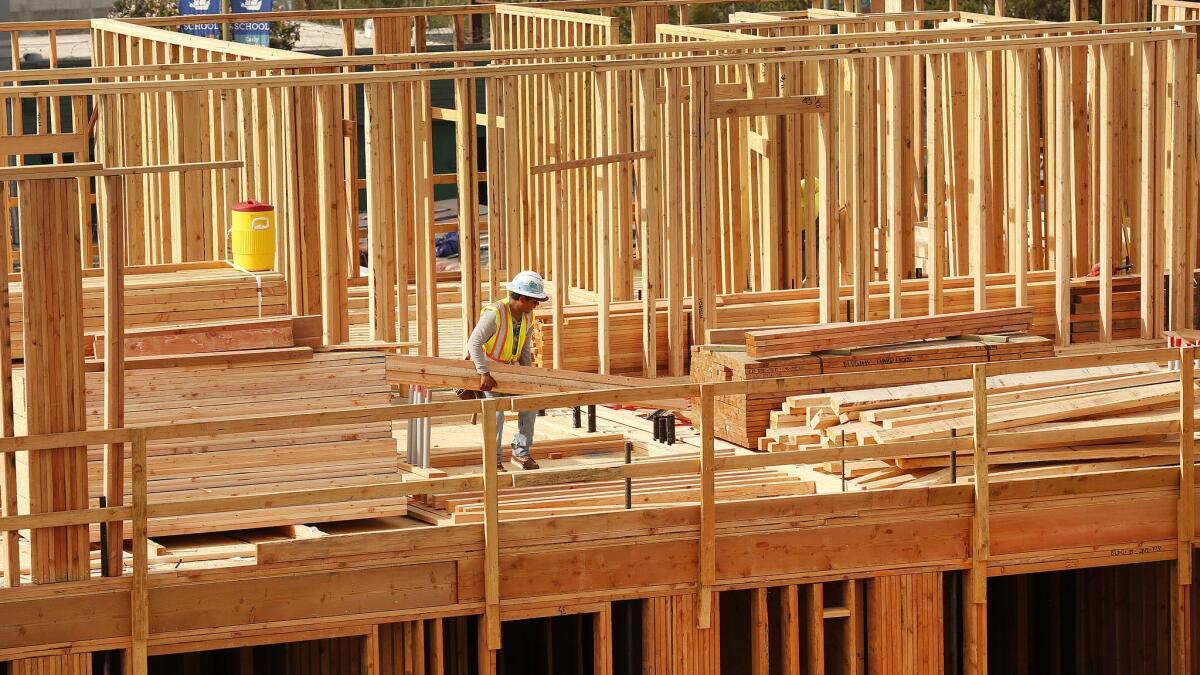Desperate to build more homeless housing, L.A. County seeks help from the private sector

- Share via
In a move meant to speed up the development of homeless housing with help from the private sector, the L.A. County Board of Supervisors has approved a motion that directs county departments to identify sites for both short-term and long-term housing, along with cost estimates and timelines for completion.
Introduced by Supervisor Kathryn Barger, the motion is an effort to involve the county more directly in housing construction after more than two years in which funds from the Measure H countywide sales tax have gone largely to homeless services, shelter operations and rental subsidies.
During a meeting in October, Barger acknowledged that programs funded by Measure H probably stopped this year’s 12% countywide increase in homelessness from being even bigger. But she also said she was frustrated with the results — both Measure H and the city’s $1.2-billion Proposition HHH homeless housing bond.
“It’s not working the way we are doing it,” Barger told The Times. “I’m going to finally say what I think needs to be done to move forward.”
The motion, which was approved unanimously, directs county staff to seek funding for the development of homeless housing and to identify a private-sector housing expert to oversee the planning.
Barger said the role of the housing expert has yet to be worked out, but she did not see the position as being independent from county administration.
“Our partners in the private sector know how to get the job done and have the capacity to explore innovative housing models that are faster and more affordable to produce,” she said.
A staff report is due Feb. 4, and progress reports are due every two months after that to hold county officials accountable.
“We can no longer afford to spend years siting and building a single interim housing facility,” Barger said. “We cannot continue to spend hundreds of thousands of dollars to create a single unit of permanent supportive housing.”
Supervisor Janice Hahn, who co-sponsored the motion, echoed Barger’s frustration.
“I know our homeless-services folks out there are doing their best, but I feel like we are losing ground and we need to look at this as a humanitarian crisis on the scale of a natural disaster,” Hahn said. “We need a Marshall Plan to address homelessness and build shelters and housing on every possible piece of land that we can think of.”
The motion requires the county’s chief executive officer to work with departments, including public works, the development authority, regional planning and public health, as well as the fire chief and director of homeless initiatives to work together on the plan.
It directs county officials to look for ways to speed up the permitting, zoning and approval processes, and to improve communication and outreach to communities that will be affected.
“In a time where community opposition to interim and permanent housing projects has the capacity to stall development altogether, it is critical that we explore models that provide adequate resources for homeless services and housing, but do not alienate the community at large,” Barger said.
More to Read
Sign up for Essential California
The most important California stories and recommendations in your inbox every morning.
You may occasionally receive promotional content from the Los Angeles Times.











